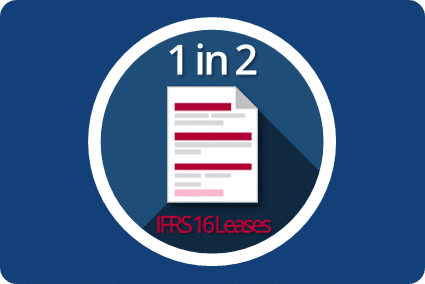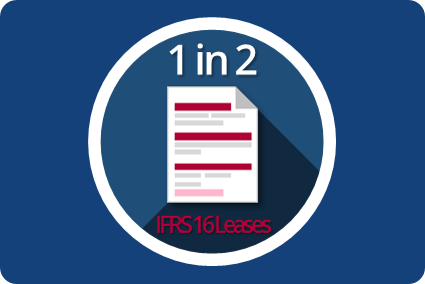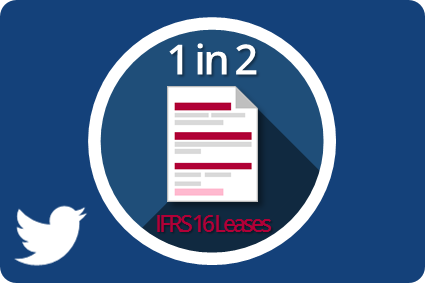1 In 2 Companies To Be Affected By IFRS 16 Leases, But Majority Unprepared
Updated 30th May 2023 | 4 min read Published 21st January 2016

Last Wednesday (January 13th, 2016), IASB Chairman Hans Hoogervorst announced the publication of the long awaited IFRS 16 Leases, which details how companies using IFRS must account for their leases from January 1st 2019.
In his video debrief, Hoogervorst highlighted that the new standard is expected to affect approximately 1 in 2 listed businesses currently using IAS 17 or FAS 13. As it currently stands, 85% of the US$3.3 trillion worth of global lease commitments does not appear on company balance sheets. With IFRS 16 bringing an estimated $2.8 Trillion onto balance sheets, it is rather worrying that a recent survey from CIT group and CFO research reveals that 78% businesses have yet to even consider the impact the new standard will have on their financial statements.
|
|
45% of respondents either do not believe their companies are well prepared to adapt their financial strategies to the proposed change (34%), or simply don’t know if they are prepared (11%). |
Despite the fact that 68% revealed they were reliant on the use of operating leases, a majority percentage (65%) highlighted that they do not anticipate that the new leasing standard will impact their choice to lease their assets.. This is most likely due to the numerous other benefits leasing affords companies, such as avoiding technological obsolescence, distributing cash flow and relinquishing the risks and commitments that come with full ownership of large and small ticket assets.
Progress for this project has been glacial. Two exposure drafts, disagreement between the IASB and FASB, countless extensions and pages of documentation have naturally led many finance professionals to grow weary of the endless updates. However, as decisions have fallen into place, the project has accelerated dramatically and these understandably disinterested businesses are now at risk of struggling to meet implementation deadlines.
The publication of IFRS 16 Leases is just the beginning and as Veronica Poole of Deloitte says, “the real challenges start now”:
|
|
“But the real challenges start now and the volume of work in the lead up to a 2019 implementation must not be underestimated. Identifying all the relevant transactions is challenging enough, not least the boundary between what is now considered a 'lease' and a 'service'. What is in and what is out will result in a series of difficult judgements." |
Lessee organisations will need to collect data and documentation for all their active leases in order to assess the practical implications of adapting to the new leasing standards and run the required retrospective reports for financial statements.
The biggest challenge will likely be data collection, particularly for larger companies that lease numerous assets and especially for organisations that currently have no method or software for lease management. Although the boards have provided guidelines for a modified retrospective approaches to lease accounting and reports, businesses will still need to gather and assess all of their active agreements and go through them lease by lease.
Missing documents, gaps in lease data records and forgotten assets under lease are some of the issues that may inhibit businesses ability to a) gain a clearer understanding of their lease commitments and b) produce the required accurate reports in time for implementation. This process will take as long as 12 months and with deadlines for retrospective reports and project expectations coming up before the official 2019 implementation, companies need to begin their preparations imminently.
|
|
“There is much work for companies to do to understand and implement the changes, not least in the area of data collection, and this work should be started sooner rather than later." |
With the right tools in place, this preparation is by no means unachievable. Many are looking to adopt lease accounting software to automate the financial calculations and ratios needed for accurate reports. Others have decide to outsource the whole process to experienced professionals.
Regardless of the method chosen, the important thing is that these financial and practical implications are considered sooner rather than later. Time is the greatest ally finance departments can have to combat this transition in the most efficient and cost effective way possible.
This is the biggest change to lease accounting in 30 years and, although there is still a window of preparation opportunity, for businesses that want to ensure they are compliant and drive savings and ROI alongside their new lease accounting plans, time is running out.
Share this Article:









